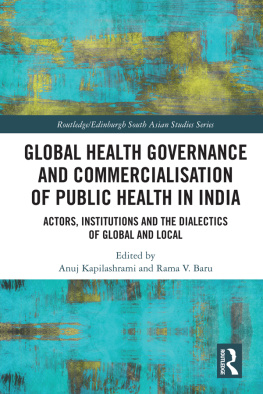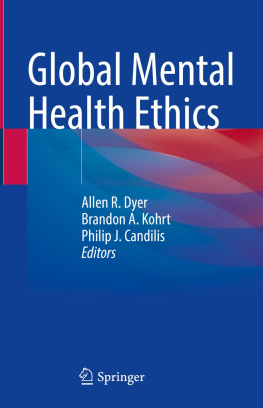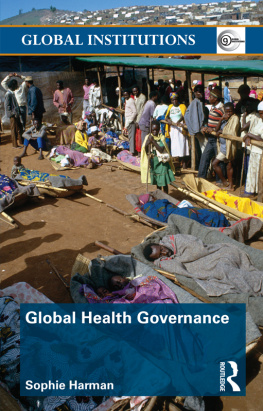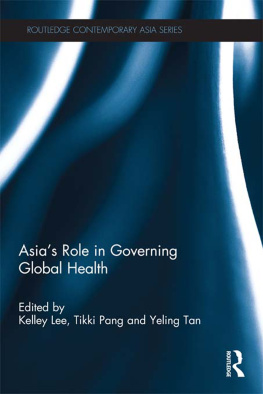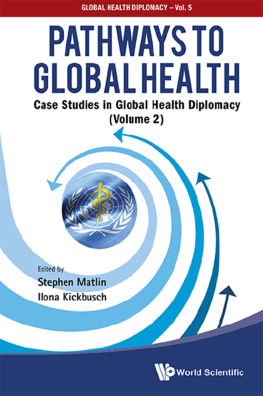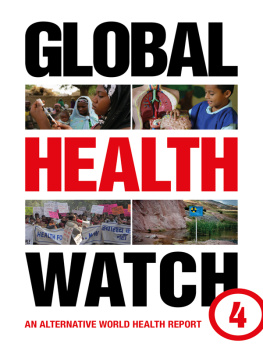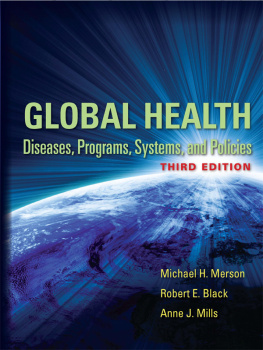SOCIAL HISTORIES OF MEDICINE
Series editors: David Cantor, Elaine Leong and Keir Waddington
Social Histories of Medicine is concerned with all aspects of health, illness and medicine, from prehistory to the present, in every part of the world. The series covers the circumstances that promote health or illness, the ways in which people experience and explain such conditions, and what, practically, they do about them. Practitioners of all approaches to health and healing come within its scope, as do their ideas, beliefs, and practices, and the social, economic and cultural contexts in which they operate. Methodologically, the series welcomes relevant studies in social, economic, cultural, and intellectual history, as well as approaches derived from other disciplines in the arts, sciences, social sciences and humanities. The series is a collaboration between Manchester University Press and the Society for the Social History of Medicine.
Previously published
Migrant architects of the NHS Julian M. Simpson
Mediterranean quarantines, 17501914 Edited by John Chircop and Francisco Javier Martnez
Sickness, medical welfare and the English poor, 17501834 Steven King
Medical societies and scientific culture in nineteenth-century Belgium Joris Vandendriessche
Vaccinating Britain Gareth Millward
Madness on trial James E. Moran
Early Modern Ireland and the world of medicine Edited by John Cunningham
Feeling the strain Jill Kirby
Rhinoplasty and the nose in early modern British medicine and culture Emily Cock
Communicating the history of medicine Edited by Solveig Jlich and Sven Widmalm
Progress and pathology Edited by Melissa Dickson, Emilie Taylor-Brown and Sally Shuttleworth
Balancing the self Edited by Mark Jackson and Martin D. Moore
Global health and the new world order
Historical and anthropological approaches to a changing regime of governance
Edited byJean-PaulGaudilliere, ClaireBeaudevin, ChristophGradmann, AnneLovellandLaurentPordi
Manchester University Press
Copyright Manchester University Press 2020
While copyright in the volume as a whole is vested in Manchester University Press, copyright in individual chapters belongs to their respective authors, and no chapter may be reproduced wholly or in part without the express permission in writing of both author and publisher.
Published by Manchester University Press
Altrincham Street, Manchester M1 7JA
www.manchesteruniversitypress.co.uk
British Library Cataloguing-in-Publication Data
A catalogue record for this book is available from the British Library
ISBN978 1 5261 4967 1hardback
First published 2020
The publisher has no responsibility for the persistence or accuracy of URLs for any external or third-party internet websites referred to in this book, and does not guarantee that any content on such websites is, or will remain, accurate or appropriate.
Cover image: World Health Organisation headquarters, Geneva Yann Forget (Wikimedia Commons/CC-BY-SA)
Cover design: riverdesignbooks.com
Typeset
by New Best-set Typesetters Ltd
Claire Beaudevin is a medical anthropologist and a Tenured Researcher with the French National Centre for Scientific Research (CNRS) at the Cermes3 in Paris. Her current research focuses on the anthropology of genomics and medical genetics in the context of global health. Her main fieldwork is located in the Arabian Peninsula (Sultanate of Oman), where she studies the development of genetics and genomics within the clinic, public health and research. In France, with Catherine Bourgain and Ashveen Peerbaye, she also investigates the development of routine oncogenomics in public hospitals. She recently published: Beaudevin, C., A. Peerbaye and C. Bourgain, It has to become true genetics. Tumor genetics and the division of diagnostic labor in the clinic, Sociology of Health & Illness 41 (4): 643657, doi : 10.1111/1467-9566.12844.
Nitsan Chorev is Harmon Family Professor of Sociology and International Studies at Brown University. She specializes in the politics of globalization and neoliberalism, global health and foreign aid. Her second book, The World Health Organization between North and South (Cornell University Press, 2012) looked at the transformation of international health policies from the 1970s to the present. Her present research looks at local drug manufacturing in Kenya, Tanzania and Uganda, from the early 1980s onward, to understand the impact of foreign aid on industrial development.
Nora Engel is an assistant professor, Global Health, with the Department of Health, Ethics and Society at Maastricht University. Her research interests lie at the intersection of science and technology, innovation, global health and development. She is the author of Tuberculosis in India: A Case of Innovation and Control (Orient Black Swan, 2015).
Didier Fassin is James D. Wolfensohn Professor at the Institute of Advanced Study in Princeton, and Director of studies at the cole des Hautes tudes en Sciences Sociales. Currently Chair of Public Health at the Collge de France, he has conducted fieldwork in Senegal, Ecuador, South Africa and France. His research explores contemporary political and moral issues. His recent books include Prison Worlds: An Ethnography of the Carceral Condition (2016); The Will to Punish (2018) and Life. A Critical Users Manual (2018).
Jean-Paul Gaudillire is historian of science and senior researcher at the Institut National de la Sant et de la Recherche Mdicale, Paris. His research explores the history of the life sciences and medicine during the twentieth century. His recent work focuses on the history of pharmaceutical innovation and the uses of drugs, and on the dynamics of health globalization after the Second World War. He is coordinator of the European Research Council (ERC) project From International to Global: Knowledge, diseases, and the postwar government of health (GlobHealth).
Sahra Gibbon is Associate Professor in Medical Anthropology at University College London. Her research examines the social and cultural dimensions of biomedicine. She currently examines how and with what consequences the transnational fields of genomic medicine are being translated in diverse cultural arenas at the interface with the politics and practice of public health care in Latin America. She is the author of Breast Cancer Genes and the Gendering of Knowledge (Palgrave Macmillan, 2007).
Christoph Gradmann is Professor of History of Medicine at the Department of Community Medicine and Global Health, University of Oslo. His research mainly focuses on the history of infectious disease in modernity, with, recently, a strong interest in what had happened to infectious diseases when they seemed to be returning at the end of the twentieth century. He is the author of


